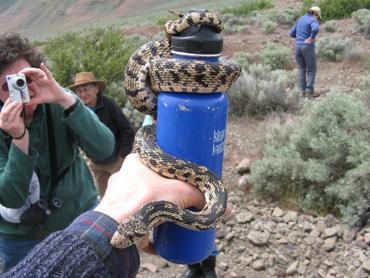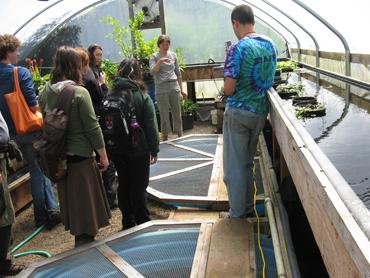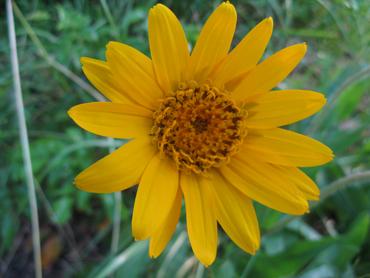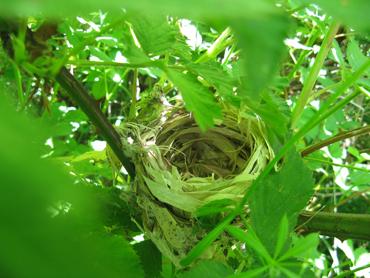




Author: Chris Roth
Published in Communities Magazine Issue #152
A Pacific wren and a couple dozen other bird species have been filling the air with their songs and calls all around me today in my community in western Oregon. That was the case (though with a different species mix) in March too, four months ago, when I wrote last issue’s Editor’s Note—but that may be where the similarity ends between that time and this, or that Note and this one.
I’m in the same place physically (after a brief time away to pack up and move back here), but the community itself has evolved in ways I could only have hoped for then. Whereas last issue’s Note may have given the impression that I was visiting a ghost town—surrounded by my memories of people who used to live here, sometimes daunted by the relative emptiness of buildings and places that used to be filled with people and activities—now this place is anything but that. I don’t have reason or time to feel nostalgic for the past here now, because the present has once again become alive enough to replace it (as it has done many times before, after smaller transitions). The promise and potential that motivated me to return in the first place, but was still waiting to be realized when I last wrote, has been manifesting into reality. It’s not happening all at once, and much remains unknown about how it will unfold, but it seems as fully engaging as my past experiences here—which is saying a lot.
In short, this has become a Right Lively ’Hood.
The connection between right livelihood and Right Lively ’Hoods seems more than linguistic. Put another way, finding meaningful, socially and ecologically responsible work with positive rather than destructive effects on our human and non-human neighbors on earth cannot be done in a vacuum. Right livelihood depends on community—on the networks of relationship that give our lives and our work context. Activities and life choices undertaken without reference to others cannot be “right livelihood,” no matter how “green” or “virtuous” they may appear. By the same token, a healthy community depends upon—cannot exist without—its members engaging in work that supports and is responsive to the whole, nurtures both the individual/family and the larger group, and interacts in a sustainable, regenerative way with the rest of the local and global webs of life.
Finding paths to right livelihood is not easy in the modern world. Just as the deck often seems stacked against the development of genuine community of all types (see Tim Miller’s A Communitarian Conundrum: Why a World That Wants and Needs Community Doesn’t Get It in our Summer 2011 issue), it also seems stacked against right livelihood. Most available jobs within modern economies exist because they will allow someone(s) to make money, not because they are socially or ecologically responsible or because they need to be done to create a better world. Most modern education is geared to prepare students to participate in this system, and is itself a part of it. In the face of a paradigm which elevates self-interest over service to the larger whole, individual accumulation over community—when the only way of meeting our own needs seems to be to engage in activities which come at the expense of others or of the earth—what are we to do?
As separate individuals, we are indeed powerless to change anything except our own personal choices, which are themselves constrained by the collectively-created world. To forge opportunities for right livelihood, we need to act together, and support one another in our efforts. This is actually more easily done than said (or than conceived of by someone trapped in the dominant paradigm). This is because, while we’ve been taught to think of ourselves as independent economic units, interconnection and relationship form the basis of all life on earth. The social and economic worlds we create together are the ones we’ll live in, and when they reflect interrelationship they’ll be much more resilient, as proven by indigenous and traditional societies that lasted for thousands of years based on much more community-focused models of livelihood. Although it is easy to forget this, because we are immersed in them, the modern economies we live in are a flash in the pan—as are many of the assumptions upon which they rest. Ultimately, if we are to survive as a species, right livelihoods will be the only livelihoods available.
What steps can we take along the path toward a world in which right livelihood is the rule, rather than the exception? We can start living as if we’re already in that world. Here are some steps that I and others I’ve known have taken. Not all of these are possible for everyone, but each of them may hold the key for somebody seeking to leave a rat race in favor of an interspecies ballet:
● Do work that is not car-dependent. See what options for economic self-support are possible within walking, biking, or public-transportation distance of where you live, or in your own home. Move to a place or get a job where you can work and live in the same place.
● Rather than figuring out how to earn money that you will then need to spend, see if there are options for bartering, exchanging, becoming part of a collective effort where needs are met without the constant exchange of money. These efforts sometimes take the form of intentional communities, but less-comprehensive or formal arrangements are also common. Local currencies and time-exchanges can facilitate this kind of exchange, as can simply talking with friends and neighbors and seeking other like-minded individuals who want to barter and share more.
● Live more simply. Assess every element of your life, especially everything you spend money on, and ask whether it is necessary or even beneficial. Could either doing without it, or reducing your use of it, or sharing it with others, actually bring you more fulfillment, while reducing or eliminating your need to do stressful work, unaligned with your life path, that then entails even more expenditures to deal with the consequences (health and otherwise) of doing it? Reduce your ecological footprint and needless complexity in your life and you will probably reduce your bills as well.
● Grow your own food. Better yet, get involved in a collective food-growing project. Exchange your labor on a local organic farm for a share of the produce. Volunteer at a community food-bank garden. If you get yourself involved enough with food-growing, you will not only save on food bills, but reduce your need or desire to spend much money on consumer goods, entertainment, or travel. You’ll stay too busy tending the crops to be distracted by things that require money.
● Find other ways to know your local bioregion and your neighbors. Making friends with the animals, plants, earth, water, weather, and people around you can provide sources of ongoing connection, entertainment, edification, and fulfillment that are free or almost free. The less money you need to spend to keep yourself happy, the less you need to earn.
● Find or create a niche that no one else is filling (or, as a variation of this, that is being inadequately filled by someone who would be happy to be liberated from it)—one that aligns with your passions, abilities, values, gifts, creativity, desire to serve. Don’t compete in the global, national, or local economy. Do something that doesn’t deprive anyone else of a job or a livelihood, but instead adds to the richness of our collective human culture, that supports us in our efforts to develop more sustainable ways of living, that helps you and others be healthier, happier, wiser, more in balance. Lots of valuable work is going undone or is being done poorly, simply because either no one is available to do it or no one has chosen to focus on it. You could be that person.
● Trust that you do have a path, and become the “community member” that the modern economic system would have had you lose touch with. Build community (intentional or otherwise) by becoming yourself, bringing your self to your work, and placing “community” (how you can meaningfully contribute to the world, which at any one moment could be washing dishes, digging a ditch, writing a poem, handing someone a magazine, listening to someone in distress, harvesting a vacationing neighbor’s ripe tomatoes for them, or taking care of your health so that you will be able to continue contributing to the world) at the forefront of what you choose to do.
● Volunteer with one of the idealistic projects that model alternatives to dominant economic and social paradigms—that attempt to restore equity, social and ecological integrity, community, and responsibility to our world. Efforts that, instead of perpetuating the status quo, create a new reality, depend on individuals who decide that those efforts are more important than “getting ahead” individually (and short-term) in an unsustainable or unjust system. They depend on people willing to pursue a different kind of “success”—one in which values and impact on the wider world matter more than money, status, or temporary accomplishment or gain at the expense of present and future generations. They depend on people following their hearts, believing that there is something more to life than individual materialistic struggle. They depend on our awakening to our connections with each other, with our home planet and all its inhabitants. They depend upon community, in whatever form we have the privilege to experience it.
The articles in this issue offer many inspirational stories about ways in which we can engage in right livelihood—as well as cautionary tales about challenges we may encounter. Thanks again for joining us, and for your support for our unconventional publishing venture. We appreciate whatever ways you are already supporting this magazine and this organization—and also any help you can provide in keeping this project viable economically (whether that’s telling friends about the magazine, giving gift subscriptions, advertising, donating, and/or sponsoring an issue—or helping the FIC in other ways, by attending an event, buying books and videos through Community Bookshelf, becoming a supporting member). This particular form of service-oriented right livelihood, like any other, depends upon community. You’re part of that community. Thank you again, and enjoy!


















danelaverty
For years I’ve dreamed of being part of an intentional community. I’m at a point in my life now where I feel I can start focusing on getting involved in the communitarian world. However, I’m also at a point where I have kids, a wife, and a mortgage, so up and moving isn’t in the cards at the moment. I appreciate your suggestions of other ways that I might engage in the communities work. Thanks!